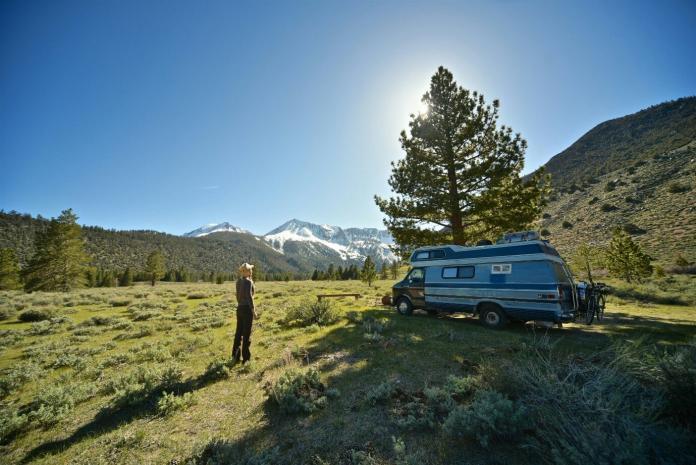The increasing allure of minimalistic living has painted a wistful picture of life on the road, but how many of us are enticed enough to consider trading bricks for vans? Would you willingly abandon the concrete and settled hominess for a nomadic life within the compact confines of a van? These are daunting questions that deserve thoughtful contemplation. So today, we’ll delve into an escalating trend – turning vans into homes. We’ll explore whether it is worth getting your hands dirty with a full-scale conversion or if you should play it safe by buying a ready-to-go motorhome.
With every passing day, more people are drawn to the romance of the nomadic lifestyle, society’s evolving perspective around ‘what defines a home?’. Furthermore, the omnipresent reality of the COVID-19 pandemic has sparked a newfound appreciation for travel, freedom and exploration while staying comfortably isolated within your four (or rather, four-wheel) walls.
In this comprehensive blog post, our goal is to equip you with all the information you need to decide whether a life on wheels is the right fit for your lifestyle. We will delve into the intricacies of converting a standard vehicle into a mobile home versus purchasing a pre-built motorhome. Our aim is to thoroughly explore the advantages and disadvantages of each option so that you can make a well-informed decision that aligns with your specific needs and preferences.
Understanding the Concept: What is Van Life?
Van life represents a unique lifestyle choice characterized by the freedom of the open road and the comfort of a compact home. It involves the innovative conversion of a standard van into a fully functional living space, complete with a comfortable bed, a functional kitchen area, a versatile workspace, and in some cases, even a bathroom. This lifestyle encourages a minimalist and nomadic approach, allowing individuals to embrace a sense of adventure while maintaining the comforts of home.
During the COVID-19 pandemic lockdowns, the appeal of van life experienced a significant surge. The concept of venturing into uncharted territories while maintaining social isolation became increasingly attractive. Furthermore, the pressures of urban living and the steep rise in housing prices have motivated a growing number of individuals to seek alternative and unconventional lifestyles. This has led to a noticeable increase in the exploration of new ways of living, particularly through van life.
The van life movement is seeing a surge in popularity as an increasing number of digital nomads, freelancers, and adventure enthusiasts are actively promoting and documenting their van life experiences. This unorthodox and alternative lifestyle is gradually gaining wider acceptance in society. However, amidst the dreamy portrayal of freedom and exploration, individuals embracing van life also encounter practical challenges that demand resilience and adaptability.
Why Consider Van Conversion Over Buying a Motorhome?
The most riveting aspect of opting for a van conversion is the flexibility it offers. It presents the opportunity to design and tailor your functional space precisely to your taste or need. Most pre-built motorhomes often compromise on design specifics, limiting personalization and originality.
Converting a van into a livable space presents an opportunity for substantial cost savings, especially when compared to the price range of a standard motorhome. This is particularly advantageous for individuals with proficiency in fine carpentry and craftsmanship. However, it’s crucial to recognize the immense time, skill, and patience required for such a project.
The process involves meticulous planning, structural modifications, electrical and plumbing work, insulation, and interior design. It’s important not to underestimate the level of dedication and expertise needed to successfully complete a van conversion project.
Moreover, a converted van subtly blends into any environment, unlike a stereotypical motorhome that can attract attention while parking in suburban areas. This feature enables one to maintain a low profile, which can be less intrusive.
What are the Drawbacks of a DIY Van Conversion?
Undertaking a do-it-yourself (DIY) van conversion project is a thrilling and rewarding endeavor, but it involves a multitude of challenges that warrant meticulous attention. This ambitious task necessitates a diverse set of specialized skills, ranging from carpentry and electrical work to insulation and plumbing. A comprehensive understanding of these areas is vital to achieve a successful and functional conversion. For instance, ensuring proper insulation is crucial for temperature control and energy efficiency, while adept knowledge of electrical wiring and plumbing systems is essential for safety and functionality.
Furthermore, the use of appropriate tools and unwavering dedication are indispensable components of this undertaking. Inexperienced execution in any of these crucial areas may lead to costly mistakes, potentially surpassing the initial budget. Therefore, thorough research, learning, and preparation are paramount to ensure a well-executed and cost-effective van conversion project.
Furthermore, the time investment for a van conversion should not be underestimated. Juggling the demands of daily work commitments while managing a conversion project can be overwhelming and stressful for many individuals. It’s essential to be prepared for the substantial time and effort required to see the project through to completion.
Why Choose a Motorhome?
Purchasing a pre-built motorhome is akin to buying a ready-made house. It’s fully equipped, functional and ready for immediate use, saving significant time and effort. Industry professionals design motorhomes to optimize space and functionality, ensuring a smooth on-the-road living experience.
Motorhomes are meticulously designed with a combination of weather-resistant materials such as high-quality fiberglass, lightweight yet durable aluminum, and specialized sealants specifically engineered to resist moisture and harsh environmental elements. These materials are carefully selected to ensure that motorhomes can withstand varying weather conditions, including heavy rain, extreme temperatures, and prolonged exposure to sunlight.
In addition to the selection of robust materials, motorhomes are constructed to adhere to rigorous industry safety standards. This involves utilizing advanced construction techniques and quality control measures to guarantee the structural integrity of the vehicle. By meeting these standards, motorhomes are able to provide exceptional durability and reliability for long-term use, giving owners peace of mind when embarking on their travel adventures.
Additionally, most motorhomes come with a comprehensive warranty that provides coverage for unforeseen issues, offering peace of mind and protection against significant financial impact.
Also, motorhomes are divisible into several categories like Class A, B, and C, each with its unique features and variable cost options, offering a good selection range for potential buyers.
What are the Disadvantages of a Motorhome?
Motorhomes, while offering great convenience, can come with a hefty price tag. The initial investment required for purchasing a motorhome is quite high, which may make it unattainable for some individuals. Additionally, there are ongoing costs to consider, such as insurance premiums and maintenance expenses, which can become burdensome over time and should be factored into the overall cost of ownership.
Furthermore, the lack of customizability in standardized motorhome designs can be a drawback for potential buyers. These designs may not offer the specific layout or compactness that individuals prefer, limiting their ability to tailor the living space to their exact needs and preferences. Moreover, the recognizable appearance of motorhomes can compromise privacy, as they clearly signal that someone is living inside, which may be a concern for some people seeking a greater level of discretion.
Taking the Wheel: Conversion or Motorhome?
The decision of whether to convert a van or purchase a motorhome doesn’t have a one-size-fits-all answer; it depends on personal preferences and limitations. If you enjoy customizing spaces, have good DIY skills, and are up for a challenging project, a DIY van conversion may be right for you. On the other hand, if you prefer immediate gratification, value time over money, and want a professional, finished look from the start, a motorhome might be your best option.
The journey to a new lifestyle comes with many questions, and it’s important to understand that taking on this adventure requires both emotional readiness and practical planning. Whichever path you choose, remember, it’s not just about the destination; it’s about the journey and the experiences it offers along the way. The key to a fulfilling van life is adaptability, some level of planning, and a good dose of spontaneity. So buckle up, and enjoy the journey!
You may also like,








